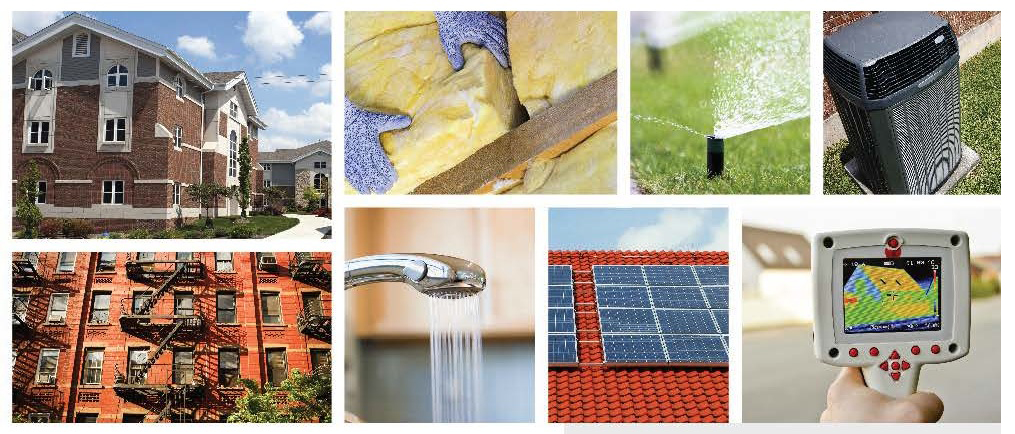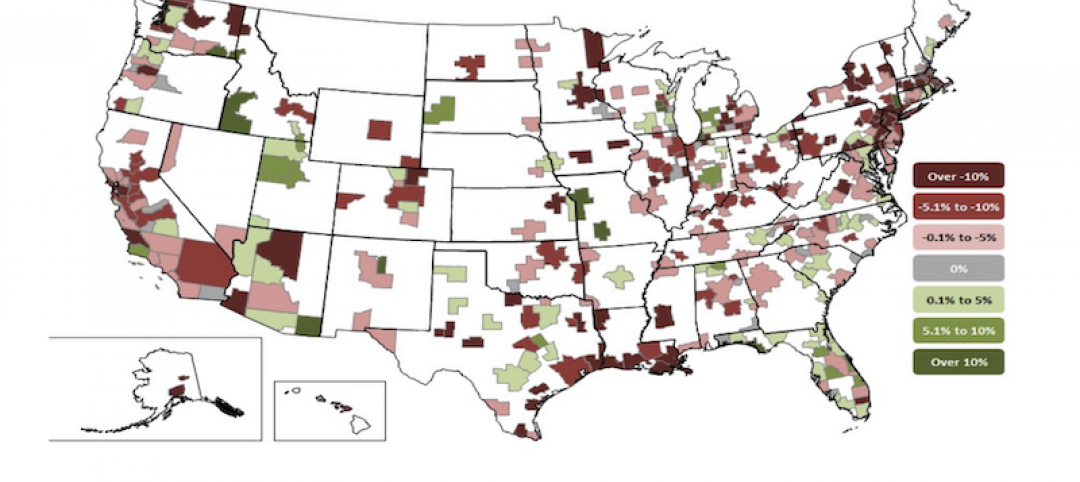Fannie Mae’s new report on energy usage in the multifamily sector found that affordable properties use 28% less energy per unit and are 29% smaller than market-rate properties. Market-rate units incur higher energy cost and use per square foot because there are more units per 1,000 square feet among affordable properties—1.29 affordable units, versus 0.91 market rate units per 1,000 sf.
The report, “Transforming Multifamily Housing: Fannie Mae’s Green Initiative and Energy Star for Multifamily,” provides comprehensive multifamily energy and water data. The first of its kind report serves as the basis for the EPA’s Energy Star Score for multifamily structures.
Costs differentials on energy use can be very steep for multifamily properties. The least efficient property could spend as much as $165,000 more in annual energy costs than a similar property operating at peak efficiently. When owners paid for all energy costs, median annual energy use was 26% higher than when tenants were responsible for paying energy costs.
In a related development, the EPA made its Energy Star score available for the multifamily sector on September 16. According to Fannie Mae, the score will enable owners and operators of multifamily properties with 20 or more units to quantify the energy performance of their properties.
(http://www.multihousingnews.com/news/fannie-mae-releases-major-study-on-multifamily-energy-use)
Related Stories
Codes and Standards | Aug 31, 2021
Home electrification will require code upgrades
Residential electric panel capacity must be increased.
Codes and Standards | Aug 30, 2021
Facebook’s new $800 million Arizona data center to save big on water
Will restore more than 200 million gallons of water per year to river basins.
Codes and Standards | Aug 26, 2021
California may require solar on new high-rise residential and commercial buildings
State energy commission approves proposal; Could become law in 2023.
Codes and Standards | Aug 25, 2021
Study finds racism, discrimination common in construction industry
NIBS to share best practices with industry leaders to improve worker treatment.
Codes and Standards | Aug 24, 2021
White paper addresses insulated metal panel specifications for roofs and walls
Pertains to provisions of the National Building Code of Canada.
Codes and Standards | Aug 24, 2021
KTGY releases free resource to reduce carbon footprint in multifamily developments
Helps navigate Denver Green Code measures—a series of voluntary codes.
Codes and Standards | Aug 19, 2021
Massive infrastructure bill includes hundreds of millions for building energy efficiency
Funds allotted for updated code implementation, construction technology, K-12 efficiency programs.
Codes and Standards | Aug 18, 2021
Fannie Mae green bonds program could be greenwashing
Analysis shows significant number of green bond properties become less efficient.
Codes and Standards | Aug 17, 2021
Three Texas cities head list of most environmentally vulnerable
Hazard analysis includes natural disasters and government response categories.
Codes and Standards | Aug 16, 2021
Bill would reform New York’s public contracting process
Council on Public Contracting Reform to have contractor representation.

















